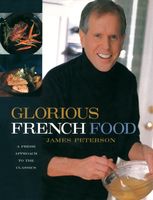Advertisement
Cooking Duck with Oranges
Published 2002
Even though the kings of France planted oranges throughout the sixteenth century, —it had become de rigueur for royalty to have an orangerie—they didn’t eat their own but instead imported oranges from Portugal. Oranges didn’t really catch on in a big way in France until the seventeenth century. The earliest references to orange sauce in seventeenth-century cookbooks describe simply adding a little orange juice to the natural cooking juices—the jus—from a roast duck. This is still a great idea, except that we Americans seldom have access to ducks that are suitable for roasting. There is also the problem that when meat is roasted rare to medium rare it doesn’t release much juice, so there’s nothing to work with. By the eighteenth and nineteenth centuries, cookbook writers were describing orange sauce, or more accurately sauce bigarade, made with blond de veau, an especially extravagant predecessor to what was later to become demi-glace, used in most professional kitchens until the 1970s.

